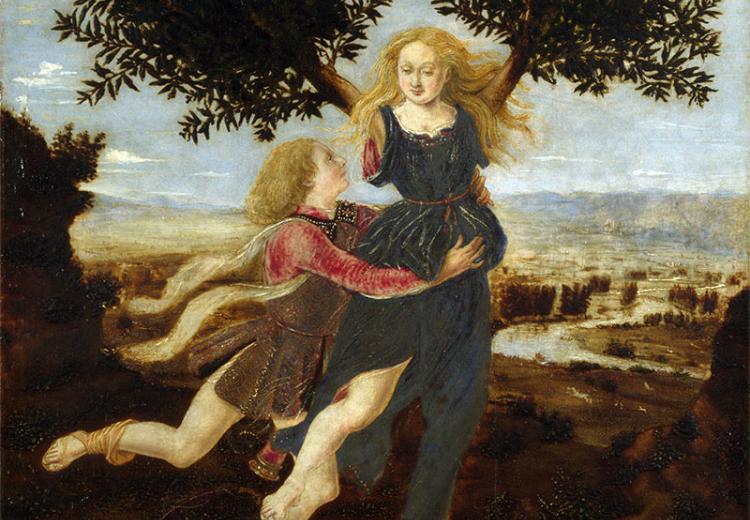Lesson 2: The Metamorphoses and Modern Poetry: A Comparison of Mythic Characters

Antonio del Pollaiuolo, Apollo and Daphne.
The great mythologies of the world take on the difficult subject that all humans must come to terms with—the inevitability of death. In Ovid’s tale of Orpheus and Eurydice. (Bk X:1–85) a husband, Orpheus, expresses such intense love for his wife, Eurydice, who has died and entered the underworld, that he dares to descend into that realm to beg for her life. This tragic tale is filled with universal emotions of passion, courage, doubt, and devotion. Ovid tells the story primarily from an androcentric point of view through the character, Orpheus. In the 20th –century a poet known by the initials H.D. took up the tale and put a different spin on it. H.D.’s poem, “Eurydice” offers the story from a woman’s point of view and articulates the emotions of a broken-hearted, and downright angry, Eurydice.
This lesson is part of a three-lesson unit on The Metamorphoses. In this lesson, students will compare the traditional story of Orpheus and Eurydice as told by Ovid with the poem “Eurydice” by the modern day poet H.D. The three lessons may be taught in sequence, or each lesson can stand on its own. Teachers may link to the full unit, with Guiding Questions, College and Career Readiness standards, and Background. Lesson 2 aligns with CCSS.ELA-Literacy.RL.9-10.9.
Learning Objectives
Compare the elements of the Orpheus and Eurydice story as told by Ovid in The Metamorphoses with the 20th-century version written by poet H.D.
